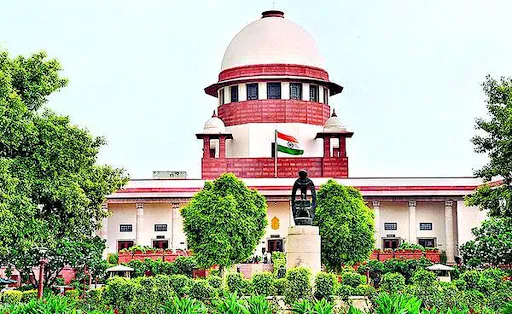In a significant development, ten opposition leaders from Assam have taken their grievances to the highest judicial body in India, the Supreme Court. Their aim is to challenge the recent draft proposal put forth by the Election Commission of India (ECI) regarding the delimitation of Assam's political constituencies. The opposition leaders firmly believe that the proposal requires careful reconsideration.
The Election Commission's draft proposal focuses on the delimitation of Assam's 126 Assembly Constituencies and 14 Lok Sabha Constituencies. Delimitation is a process that involves the redrawing of boundaries and allocation of seats to ensure fair representation for the population in electoral constituencies. This exercise is conducted periodically to address demographic changes and uphold democratic principles.
The opposition leaders in Assam, however, have expressed concerns regarding the proposed delimitation. They believe that the draft proposal does not adequately address the unique characteristics and requirements of Assam's constituencies. Their primary contention is that the proposal fails to consider important factors such as geographical features, cultural diversity, and the distinct identity of various communities within the state.
Moreover, the opposition leaders argue that the proposed delimitation could potentially lead to an unfair distribution of political power within the state. They believe that certain communities and regions might be disproportionately affected, leading to an imbalanced representation in the Assembly and Lok Sabha. To rectify this situation, they have approached the Supreme Court seeking a review of the proposal and urging the Election Commission to reconsider its approach.
The Supreme Court is the ultimate authority for legal matters in India, and its intervention in this case could play a crucial role in shaping the outcome of the delimitation exercise. The opposition leaders are hopeful that the Court will thoroughly examine their concerns and ensure a fair and inclusive delimitation process that upholds the principles of democracy and respects the diverse nature of Assam.
It is important to note that the Supreme Court's decision on this matter will have far-reaching implications for the political landscape of Assam. The Court's ruling will not only impact the upcoming elections but will also shape the state's political dynamics for years to come. Therefore, it is imperative that the Court takes into account the opposition leaders' plea and carefully considers the potential consequences of the proposed delimitation.
As the legal battle unfolds in the Supreme Court, all eyes are on the outcome, which will determine the future electoral representation of Assam. The opposition leaders' initiative highlights their commitment to safeguarding the interests of the diverse communities residing in the state. The Court's decision will not only establish a precedent for fair delimitation processes but will also serve as a testament to the strength of India's democratic system.
The opposition leaders in Assam have approached the Supreme Court to challenge the Election Commission's recent draft proposal on the delimitation of constituencies. They contend that the proposal does not adequately address the unique characteristics of Assam and could result in an unfair distribution of political power. The Supreme Court's decision in this case will shape the future of Assam's political landscape, and it is hoped that it will uphold the principles of democracy and ensure equitable representation for all.

 Correspondent
Correspondent
